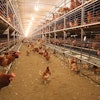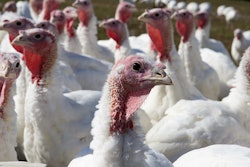
A commercial poultry flock in Alberta and a black bear in Quebec are among Canada’s most recent cases of highly pathogenic avian influenza.
Avian influenza in poultry
A new case of HPAI was confirmed in a commercial poultry flock in Strathcona County, Alberta, on September 4.
This is the first case of HPAI for Strathcona County, and the 23rd case in commercial poultry in the Canadian province of Alberta, according to information released by the Canadian Food Inspection Agency (CFIA).
The size of the flock and the type of birds in the flock has not been disclosed by CFIA, but those details should be later announced by the World Organisation for Animal Health (WOAH).
Canada’s three most recent cases of HPAI in commercial poultry have all been confirmed in Alberta. Other recent cases were confirmed on August 31 in Sturgeon County and August 23 in Athabasca County. Outside of Alberta, the last case of HPAI was confirmed on August 1 in Saint-Gabriel-de-Valcartier, Quebec.
Black bear infected with avian flu
The Canadian Wildlife Health Cooperative (CWHC) late last week announced that a female black bear which was euthanized in June tested positive for an H5N1 variant of HPAI.
According to the CWHC, the bear was in the Forillon National Park in the Gaspésie region of Quebec, and park visitors reported that the bear was exhibiting abnormal behavior, such as wandering between vehicles, swimming in circles and then hitting a wall after emerging from the water. Later that day, park staff found the bear struggling to breathe, unresponsive to sound stimuli and experiencing convulsions.
Because of the bear’s condition, it was euthanized. Organs from the animal were tested, and those samples revealed the presence of HPAI.
CWHC stated that it believed the bear became infected after eating a bird that was carrying the virus. It is believed that this is the first confirmed case of HPAI in a bear in Canada.
HPAI cases have also been reported in other species of mammals in Canada in 2022, according to the WOAH website. Those include red foxes, skunks, an American mink and a harbor seal.


















